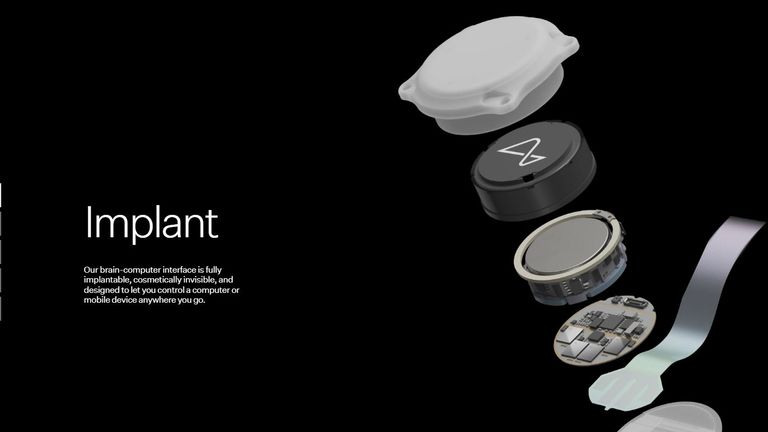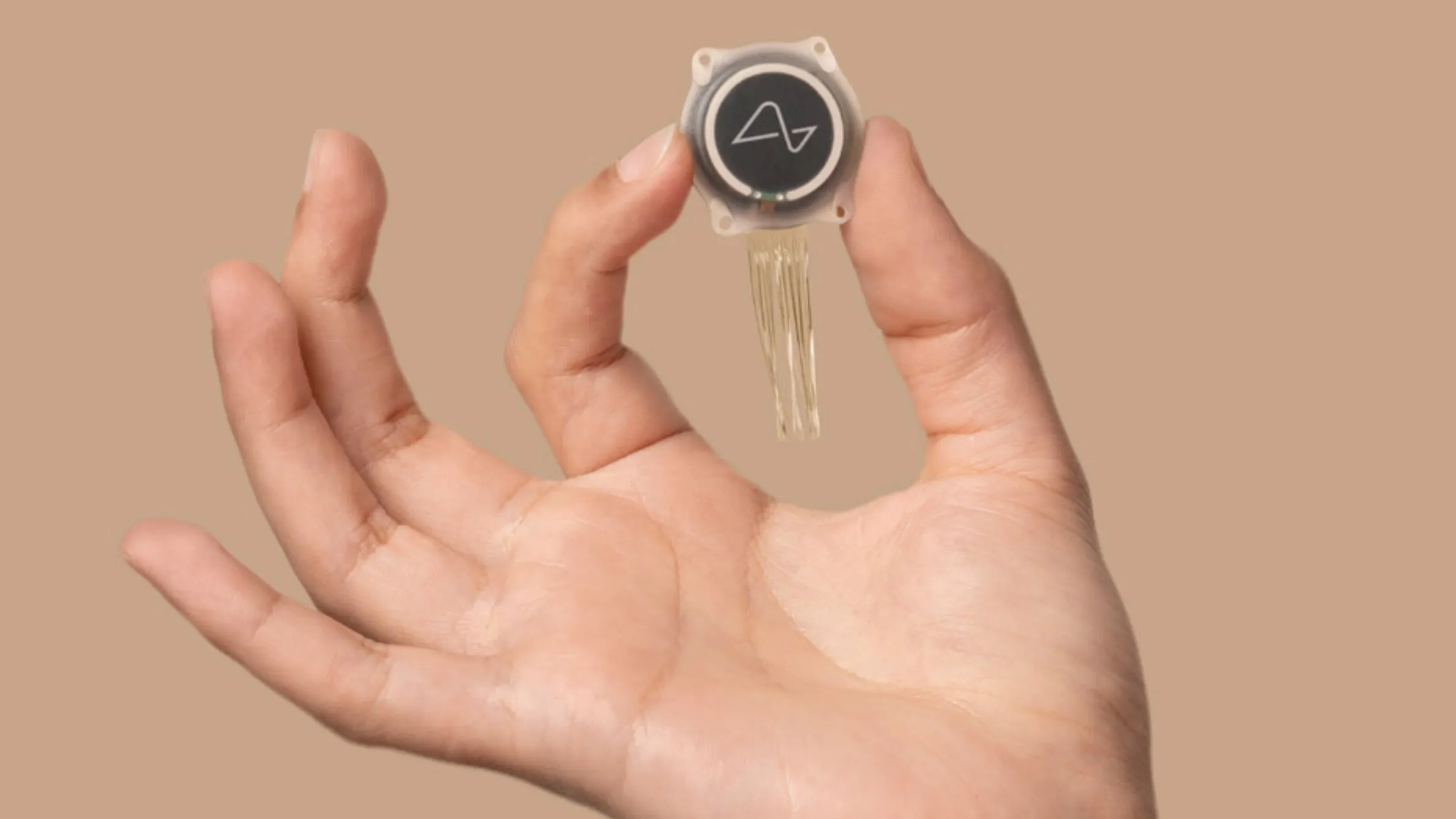Tue 30 January 2024:
Elon Musk, a tech tycoon, has claimed that his Neuralink company has successfully implanted one of its wireless brain chips in a human.
The billionaire also revealed he hoped the product – called ‘Telepathy’ – will eventually allow users with disabilities like Stephen Hawking to “communicate faster than an auctioneer”.
“Initial results show promising neuron spike detection,” Musk said in a post on the social media platform X on Monday.
Spikes are activity by neurons, which the National Institute of Health describes as cells that use electrical and chemical signals to send information around the brain and to the body.

The first human patient has received an implant from brain-chip startup Neuralink
Musk said it will “‘enable control of your phone or computer, and through them almost any device, just by thinking”.
The company’s goal is to connect human brains to computers to help tackle complex neurological conditions.
A number of rival companies have already implanted similar devices.
This includes the École Polytechnique Fédérale in Lausanne (EPFL), in Switzerland, which has successfully enabled a paralysed man to walk just by thinking.

That was achieved by putting electronic implants on his brain and spine which wirelessly communicate thoughts to his legs and feet.
There has been no independent verification of Musk’s claims, nor has Neuralink provided any information about the procedure he says has taken place.
Neuralink has been criticised in the past, with Reuters reporting in December 2022 that the company engaged in testing which resulted in the deaths of approximately 1,500 animals, including sheep, monkeys and pigs.
In July 2023, the head of the US Department of Agriculture – which investigates animal welfare concerns – said it had not found any violations of animal research rules at the firm.
In September, Neuralink said it received approval for recruitment for the human trial.
The study uses a robot to surgically place a brain-computer interface (BCI) implant in a region of the brain that controls
the intention to move.
The company says its initial goal is to enable people to control a computer cursor or keyboard using their thoughts alone.






